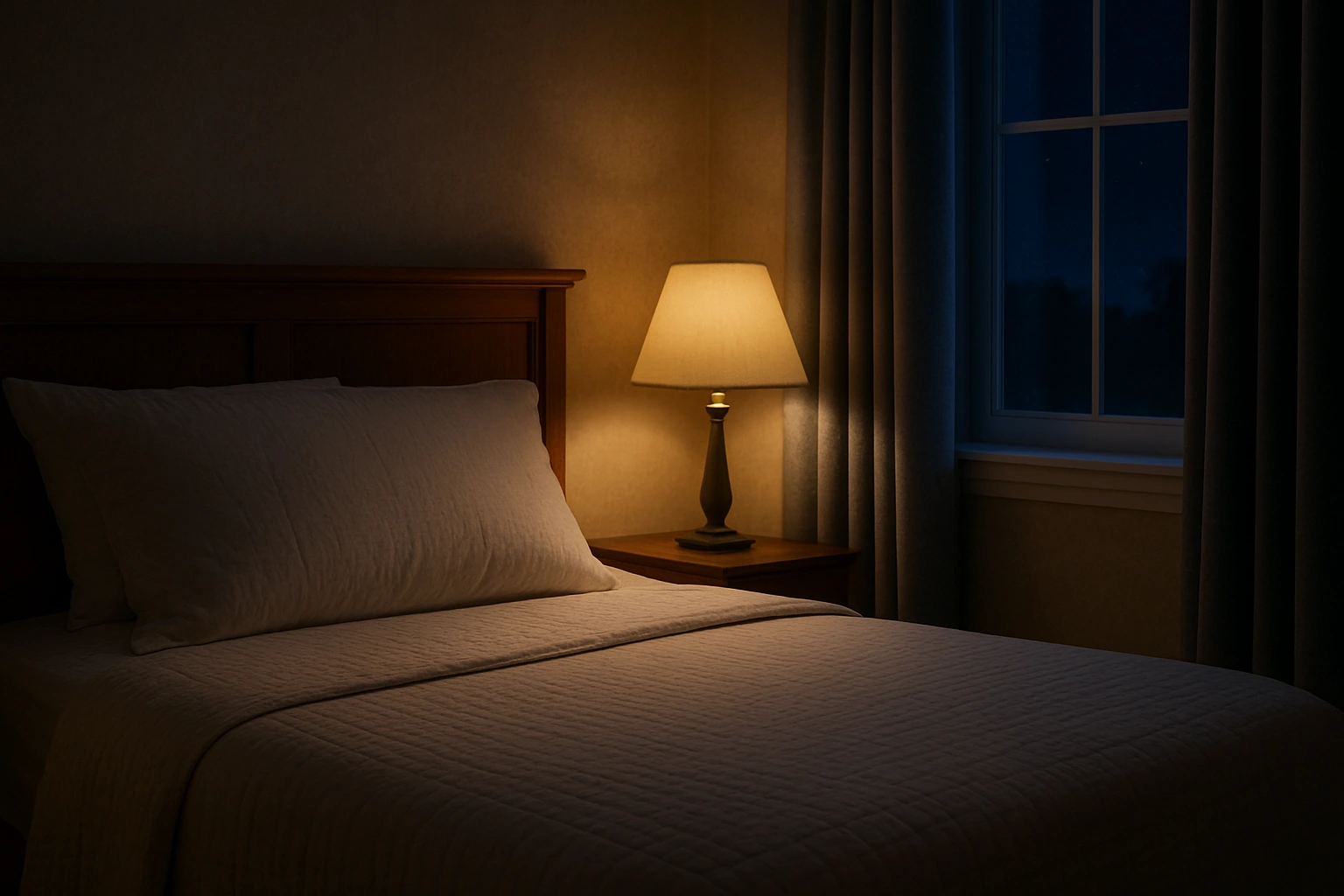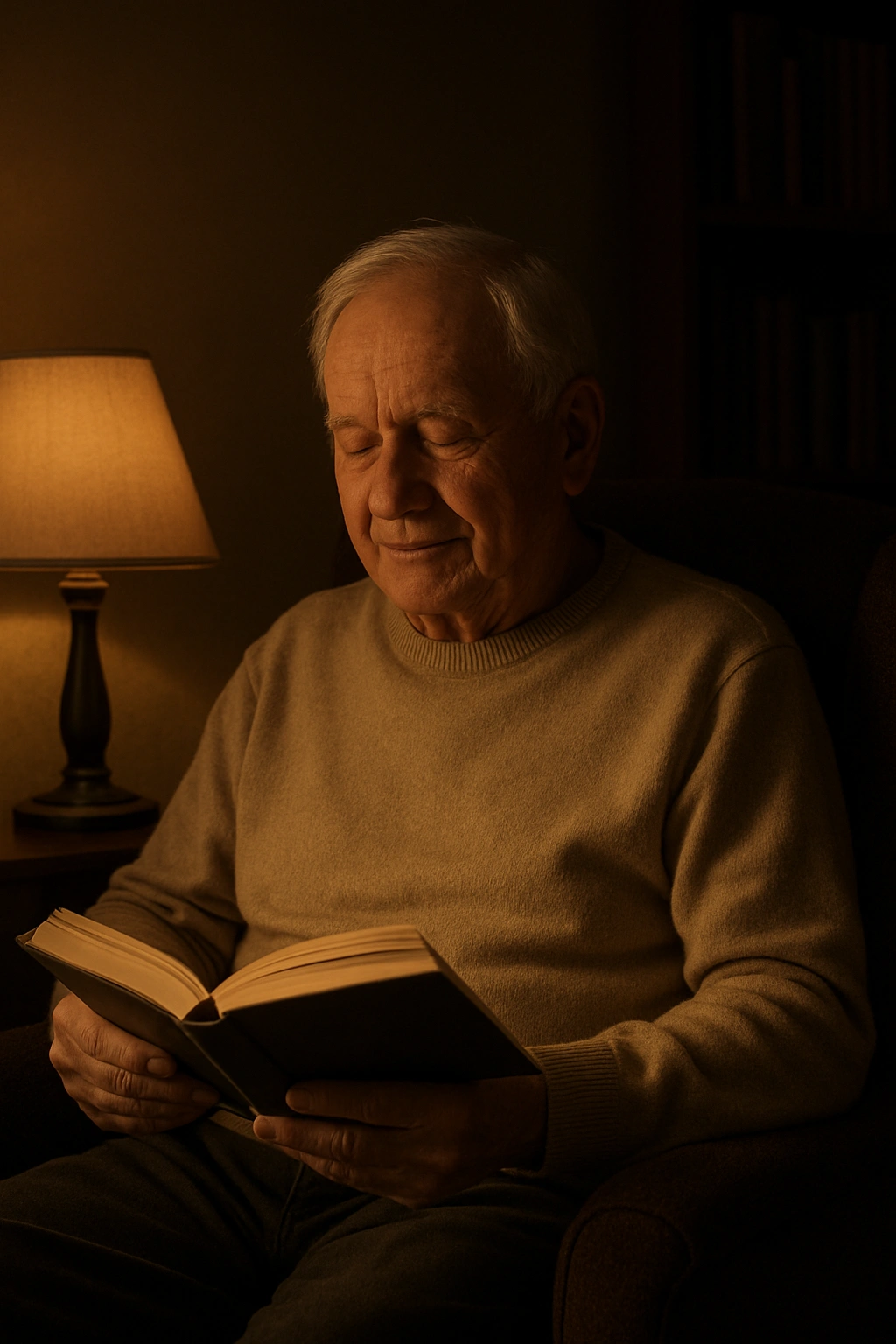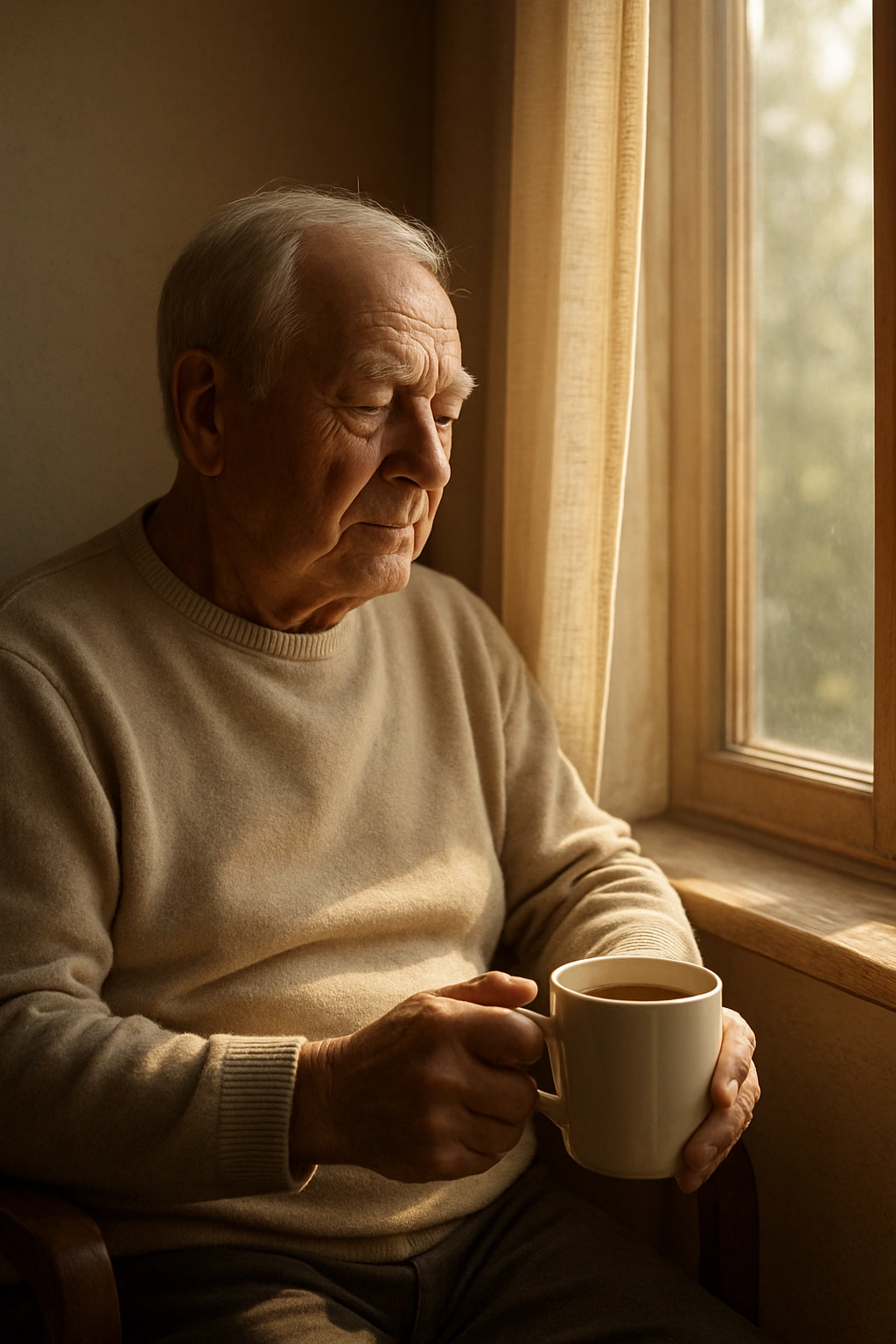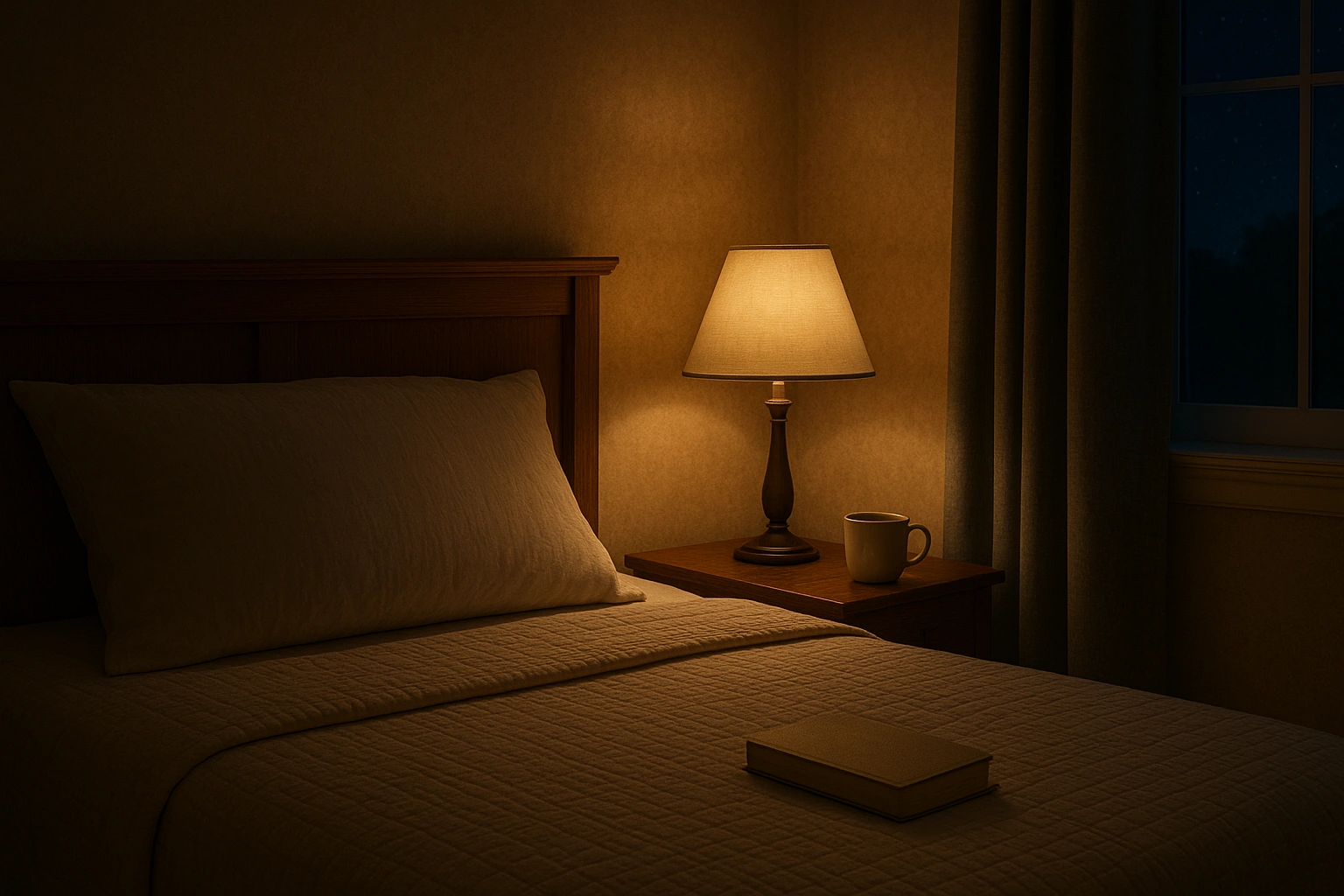
Do you find yourself tossing and turning, watching the clock tick through the lonely hours of the night? You’re not alone. Many older adults struggle with sleep, which is why sleep tips for seniors can make a real difference. For too long, we’ve accepted poor sleep as an inevitable part of aging, but simple sleep tips for seniors can help restore restful nights. With the right guidance, these sleep tips for seniors can unlock deep, restorative rest and improve overall health. By incorporating practical sleep tips for seniors into your routine, peaceful nights may no longer feel out of reach.
Quality sleep is not a luxury; it’s a pillar of health, as vital as diet and exercise. This guide offers practical sleep tips for seniors that go beyond the usual advice. By following these sleep tips for seniors, you can better understand the reasons behind age-related sleep changes. With clear, actionable sleep tips for seniors, you’ll have a plan to improve your rest. Incorporating simple sleep tips for seniors tonight can help you wake up feeling more refreshed and energized.
Understanding Sleep Changes as We Age
It’s not your imagination—sleep really does change as you get older. This isn’t about needing less sleep, which is a common myth, but about changes in your “sleep architecture.” As we age, we tend to spend less time in deep, restorative sleep and more time in lighter sleep stages. This makes us more susceptible to waking up during the night.
Furthermore, our internal body clock, or circadian rhythm, can shift forward. This is why many seniors feel sleepy earlier in the evening and wake up earlier in the morning. According to the CDC, while the recommended 7-9 hours of sleep remains the same, achieving that consolidated block of rest becomes the primary challenge. The focus of modern elderly wellness advice is therefore on improving sleep quality and efficiency, not just quantity.
Why Quality Sleep is a Superpower for Seniors
Prioritizing sleep is one of the most impactful investments you can make in your overall health and quality of life. Following simple sleep tips for seniors can help you enjoy these benefits more fully. By adopting practical sleep tips for seniors, every aspect of your well-being can improve. Consistently using sleep tips for seniors can make restful nights more achievable. Even small changes suggested in sleep tips for seniors can have a profound effect on your daily energy and mood.
Sharper Cognitive Function and Memory
During deep sleep, your brain works hard to consolidate memories and clear out toxins that build up during waking hours. Consistent, quality sleep is directly linked to better memory recall, clearer thinking, and a reduced risk of cognitive decline.
Improved Mood and Emotional Resilience
A sleepless night can leave anyone feeling irritable and emotionally fragile. Chronic poor sleep can increase the risk of depression and anxiety. Restful sleep helps regulate mood-governing chemicals in the brain, giving you the emotional resilience to navigate daily challenges.
Enhanced Physical Health and Immunity
Your body performs critical repair work while you sleep, from mending tissues to producing infection-fighting proteins. Good sleep strengthens your immune system, helps regulate blood sugar, and lowers blood pressure, reducing your risk for chronic illnesses like heart disease and diabetes.
Reduced Risk of Falls and Accidents
Sleep deprivation impairs coordination, balance, and reaction time just as much as alcohol. Getting enough rest is a crucial safety measure, significantly reducing the risk of dangerous falls and other accidents. Better sleep is a cornerstone of a healthy lifestyle, a topic often explored at sites like peternakan.web.id.
The Pillars of Healthy Sleep Hygiene
“Sleep hygiene” refers to the habits and practices that help you sleep well on a regular basis. Simple sleep tips for seniors can guide you in creating these healthy routines. By following practical sleep tips for seniors, you can set the perfect conditions for rest. Incorporating easy sleep tips for seniors into your daily life makes restful nights more achievable. Even small adjustments suggested in sleep tips for seniors can have a big impact on overall sleep quality.

1. Create a Consistent Sleep Schedule
This is the most important tip of all. Go to bed and wake up at the same time every day, even on weekends. This reinforces your body’s sleep-wake cycle and can help you fall asleep faster and wake up more easily.
2. Develop a Relaxing Pre-Sleep Ritual
Your body needs time to shift into sleep mode. Spend the last hour before bed doing a calming activity like reading a book, listening to soft music, taking a warm bath, or practicing gentle stretching. This signals to your brain that it’s time to wind down.
3. Optimize Your Bedroom Environment
Your bedroom should be a sanctuary for sleep. Keep it cool, dark, and quiet. Use blackout curtains, an eye mask, or a white noise machine if needed. Reserve your bed for sleep and intimacy only—no working or watching TV in bed.
4. Be Mindful of What You Eat and Drink
Avoid large meals, caffeine, and alcohol in the hours leading up to bedtime. Caffeine can stay in your system for many hours. While alcohol might make you feel drowsy initially, it disrupts sleep later in the night.
From Sleepless to Rested: A Real-Life Scenario
Let’s talk about Arthur, a 78-year-old who used to dread nighttime. He would fall asleep easily but wake up around 2 AM, his mind racing. He implemented a few key sleep tips for seniors: He set a strict 10 PM bedtime and 6 AM wake-up time. He swapped his evening news habit for reading a novel under a dim lamp. He also made sure his bedroom was cool and completely dark. Within two weeks, Arthur noticed he was sleeping through the night more often. He felt sharper during his morning crossword puzzle and had more energy for his afternoon walk. His story shows that small, consistent changes can yield remarkable results.
Comparing Bedtime Relaxation Techniques
Finding a wind-down routine that works for you is personal. Here’s a comparison of popular methods.
| Technique | How It Works | Pros | Best For |
|---|---|---|---|
| Reading a Physical Book | Reduces stress by providing an escape; avoids blue light | Highly effective, simple, inexpensive | Distracting a racing mind |
| Listening to Calming Music | Slows heart rate and breathing, lowers anxiety | Passive and easy, hands-free | Creating a tranquil atmosphere |
| Gentle Stretching | Releases muscle tension and promotes relaxation | Good for physical and mental relaxation | Relieving minor aches and stiffness |
| Deep Breathing Exercises | Activates the body’s relaxation response | Can be done anywhere, very powerful | Quieting anxiety and stress quickly |
Common Sleep Mistakes to Avoid
Sometimes, what you don’t do is as important as what you do. Steer clear of these common sleep saboteurs.
- Watching TV in Bed: The blue light emitted by screens can suppress the sleep hormone melatonin, and engaging content can be stimulating rather than relaxing.
- Napping Too Late or Too Long: A short, early afternoon nap is fine, but long naps, especially after 3 PM, can steal from your “sleep drive” and make it harder to fall asleep at night.
- Staying in Bed When You Can’t Sleep: Lying awake for long periods can create a stressful association between your bed and wakefulness. If you can’t sleep after 20 minutes, get up and do something relaxing.
- Ignoring Potential Medical Issues: Chronic sleep problems can be a symptom of an underlying condition like sleep apnea, restless legs syndrome, or even a side effect of medication. Don’t just assume it’s “old age.”
- Relying on Over-the-Counter Sleep Aids: While they may offer a quick fix, many OTC sleep aids are not intended for long-term use and can have side effects. Always consult a doctor before using them regularly.
Expert Tips & Best Practices
Here are some next-level tips from sleep experts to fine-tune your rest.

- Get Morning Sunlight Exposure: Spend at least 15-20 minutes in natural sunlight shortly after waking up. “This is one of the most powerful signals you can send to your internal clock to anchor your circadian rhythm,” advises sleep researcher Dr. David Chen.
- Exercise Regularly, But Not Too Late: Daily physical activity promotes deeper sleep. However, try to finish any vigorous exercise at least 3-4 hours before bedtime to allow your body to cool down.
- Manage Fluids Wisely: Drink plenty of water during the day, but try to limit your fluid intake in the 1-2 hours before bed to minimize nighttime trips to the bathroom.
- Keep a “Worry Journal”: If a racing mind keeps you awake, spend a few minutes before bed writing down your worries and a potential next step for each. This can help “park” your anxieties for the night.
- Review Your Medications with Your Doctor: “An often-overlooked culprit for sleep issues in seniors is their medication list,” Dr. Chen adds. “A simple review with a physician can sometimes uncover a major source of the problem.”
Frequently Asked Questions (FAQ)
Q: Is it normal for seniors to need less sleep?
A: This is a common myth. While sleep patterns change, older adults still need about 7 to 9 hours of sleep per night, the same as younger adults. However, they may experience lighter sleep and more frequent awakenings, which is why quality becomes so important.
Q: Are afternoon naps a good idea for seniors?
A: Short naps (20-30 minutes) early in the afternoon can be beneficial for boosting alertness. However, long or late-afternoon naps can interfere with nighttime sleep. It’s best to avoid napping within several hours of your intended bedtime.
Q: What should I do if I wake up in the middle of the night and can’t get back to sleep?
A: Avoid tossing and turning for more than 20 minutes, as this can create anxiety. Get out of bed and go to another room. Do a quiet, relaxing activity, like reading under dim light, until you feel sleepy again, then return to bed.
Q: Can my medications be affecting my sleep?
A: Yes, absolutely. Many common medications for conditions like high blood pressure, asthma, and depression can interfere with sleep. If you suspect your medication is the cause, speak with your doctor. Do not stop taking any prescribed medication without medical advice.
Q: When should I see a doctor about my sleep problems?
A: You should consult a doctor if poor sleep is affecting your daytime functioning, or if you suspect you may have an underlying sleep disorder like sleep apnea (indicated by loud snoring, gasping) or restless legs syndrome. Chronic insomnia that doesn’t improve with lifestyle changes also warrants a medical evaluation.
Conclusion
Sleep changes with age, so implementing sleep tips for seniors is key. By understanding changes in sleep patterns and then implementing simple sleep tips for seniors, you can improve the quality of your rest. A consistent routine and a comfortable environment are part of sleep tips for seniors that promote better sleep. By taking small steps with sleep tips for seniors, you give your body a chance to recover and maintain energy throughout the day.
For more detailed information, authoritative resources like the National Sleep Foundation offer a wealth of knowledge. The journey to better sleep begins with a single, intentional step.
What is one change you will make to your bedtime routine tonight? Share your commitment in the comments below!
